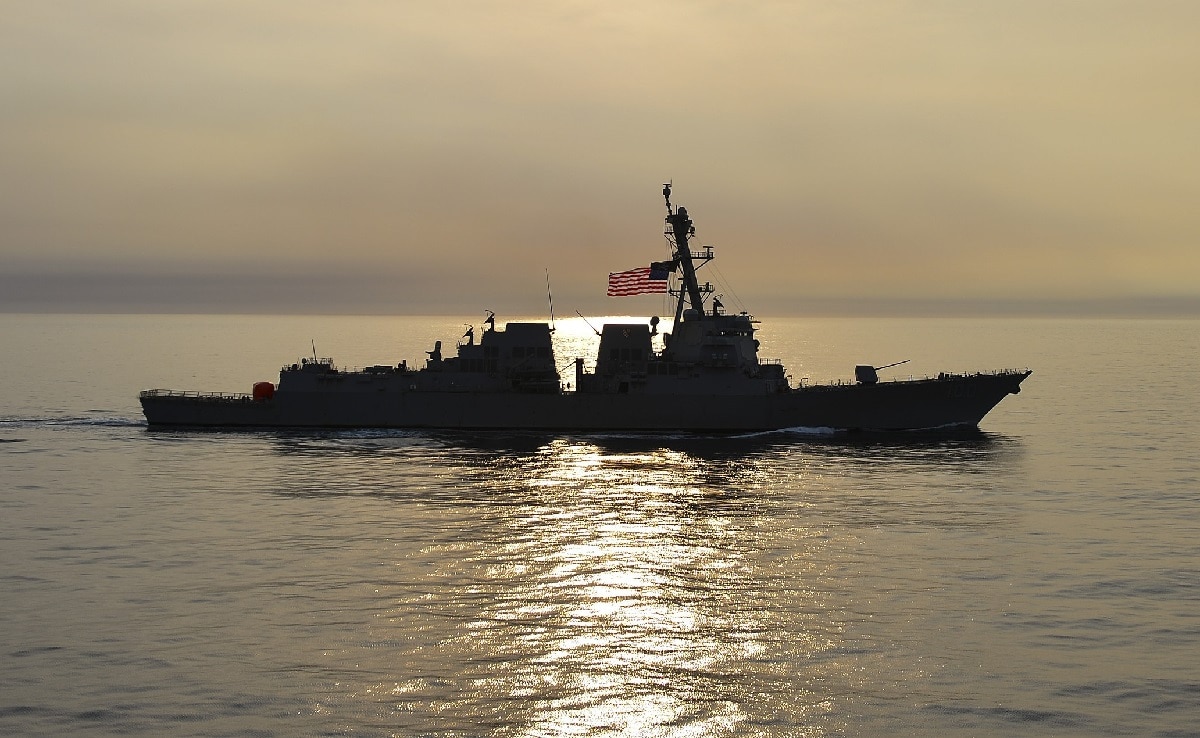Anthony W. Holmes

Eight months into Russia’s attempted annexation of Ukraine there remains a chorus of conservative commentators who argue that our military support for NATO and materiel support for Ukraine enable China.
Pre-invasion, we were warned not to take our eye off China. Asia specialists lamented that Ukraine would distract America from China and Taiwan. After the invasion, a lone U.S. senator voted against allowing Sweden and Finland to join NATO because it was a “legacy commitment” in Europe with no role in a China fight.
In a series of illogical but common threads, cable commentators and podcast pundits lectured that preparing for war with China was a national security imperative while aiding Ukraine was warmongering. They rhetorically asked when Congress would start putting America’s needs ahead of President Zelensky’s. Satirical articles and memes have exploded of Zelensky wearing gold chains and shamelessly asking for more money to fund, for example, a diamond coated swimming pool. Support for Ukraine is broadly called a “cult.”
Yet, you never hear them ask when Congress will put America’s needs ahead of Taiwan President Tsai’s.
The same isolationist sentiments that would argue against aiding Ukraine should also apply to Taiwan and, to be honest, all of East Asia. In fact, would not war with China be unnecessary if we did not have interests to protect and we retrenched back to our shores?
This strange phenomenon is what I call “selective isolationism,” and it finds safest harbor in conservative circles that adopted former President Trump’s warning against “forever wars.” That inoffensive, anodyne warning has metastasized into a deep distrust of all of America’s institutions, foreign policy ideals, and national security goals.
In the past, America’s political left derided military operations in Iraq as a “war for oil” and “imperialism” for any attempt to defeat communism. America’s uniformed military leaders had “blood on their hands,” were “child killers,” were banned from college campuses, and were generally held responsible for the political decisions of their leaders.
Compare that with today, where many conservative commentators make pronouncements that would fit right in at the 2003 anti-war rally in D.C. I observed while interning for a senior Republican member of Congress.
They tell us the United States started the war in Ukraine by allowing the Soviet Union’s freed former puppet states to join NATO. They tell us Ukraine is so uniquely corrupt that it deserves no support whatsoever. They proclaim that merely supplying Ukraine with the means to defend itself is immoral and born from corporate greed. In fact, it is not uncommon to see them now off-handedly say that the United States started the war in Afghanistan. They have become indistinguishable from a leftwing college professor ranting about the military-industrial complex.
How then did we arrive at these same people telling us that preparing for conflict with China is a necessity? What is the difference?
The China Crisis
By their logic are we not “starting a conflict” with China by arming Taiwan to defend itself, working with Japanese allies on defense reform, and holding annual military training exercises with the Republic of Korea? Beijing holds this exact view.
The argument that we are taking our eye off China by paying attention to the Russia-Ukraine War is seriously misguided. If our adversaries knew that we were evaluating every conflict everywhere against how it impacts the primacy of strategic competition with China it would make war more likely, not less.
Our adversaries would take more strategic initiative, believing that they could seize and lock-in gains while the United States debated internally over whether a U.S. response was “worth it.” This policy would also encourage China to outsource its activities to proxies in the belief that plausible deniability would make U.S. action more politically difficult.
I almost cannot believe I have to make this point, but Russia is engaging in a land war right now on the borders of a major U.S. alliance system. If Ukraine had not bravely resisted, other states would likely be under occupation at this stage. To argue that we should not have an interest in the conflict happening right now because of what China may do in the future is strategic malpractice.
To accept the selective isolationist view, you would have to believe that China is deterred by a U.S. that spends no treasury or political will on treaty allies in Europe who are being directly threatened by a revanchist and resurgent empire on its borders.

171207-N-JH929-039 PACIFIC OCEAN (Dec. 7, 2017) The Arleigh Burke-class guided-missile destroyer USS Kidd (DDG 100) prepares to perform a sea-power demo alongside the aircraft carrier USS Nimitz (CVN 68) during Tiger Cruise 2017, Dec. 7, in the Pacific Ocean. The Nimitz Carrier Strike Group is on a regularly scheduled deployment to the Western Pacific. The U.S. Navy has patrolled the Indo-Asia-Pacific region routinely for more than 70 years promoting peace and security. (U.S. Navy photo by Mass Communication Specialist 3rd Class Cole Schroeder/Released).
Ukraine is not a U.S. treaty ally. Taiwan is not a treaty ally. Poland, Slovakia, Hungary, and Romania are U.S. treaty allies that border Ukraine. Japan, South Korea, and the Philippines are U.S. treaty allies who would face destructive consequences in a Chinese invasion of neighboring Taiwan.
The strategic parallels are clear, but the arguments are disjointed. Reasonable people can disagree on what constitutes a core national security interest. They could conclude, wrongly in my view, the first major land war in Europe since World War II should not concern the United States at all. If they want to make that argument, they need to explain why defending Taiwan and standing up to China are grave national security imperatives but defending Ukraine and challenging Russia is an act of avarice, corruption, and warmongering.
No comments:
Post a Comment